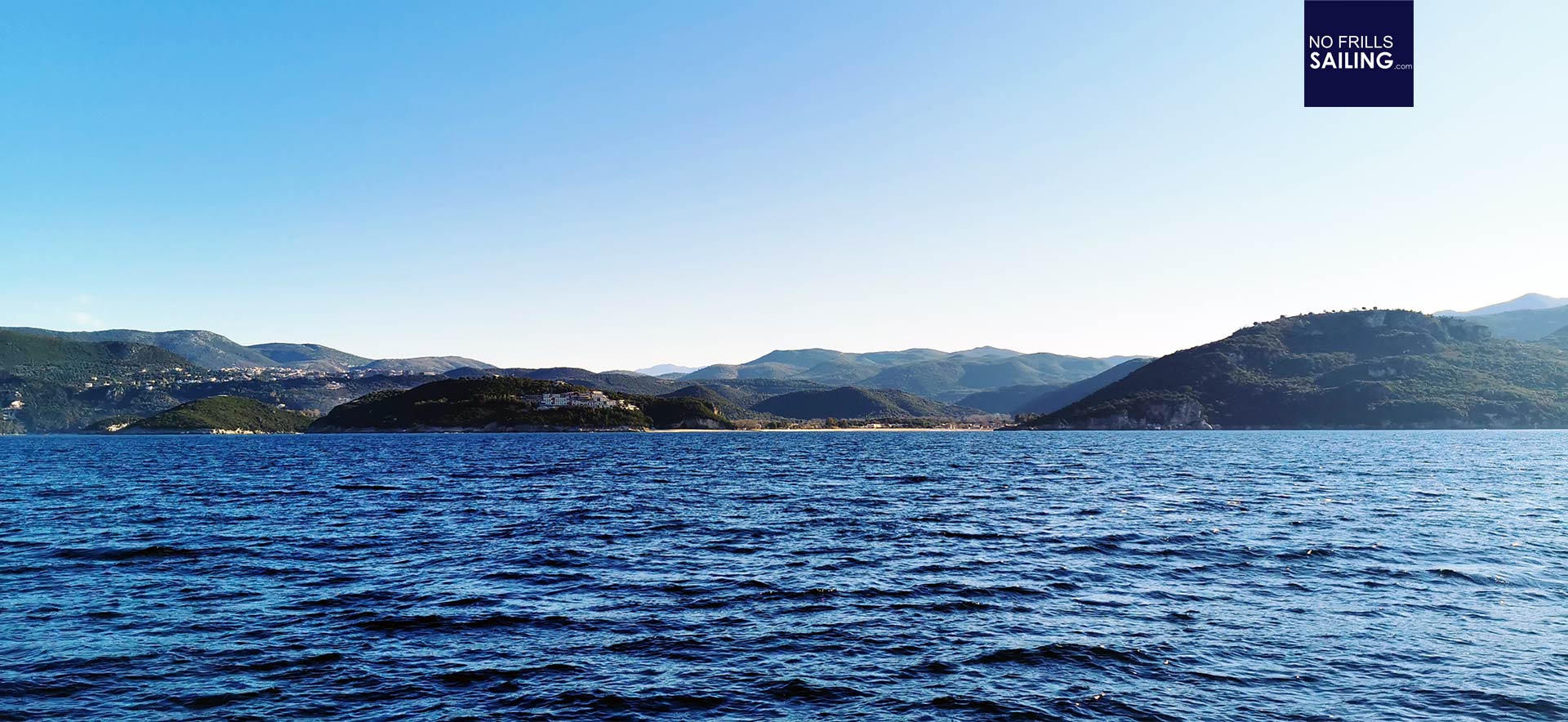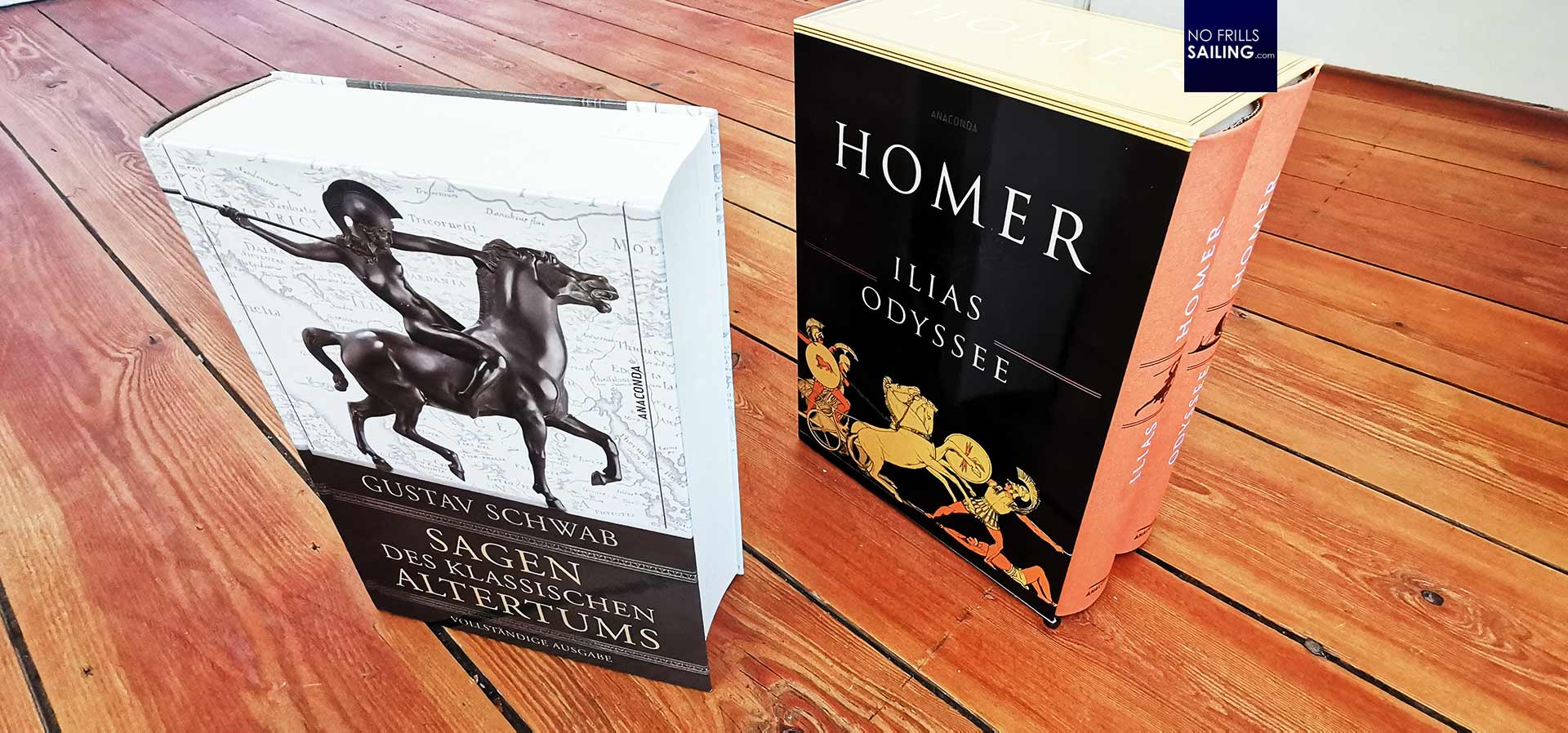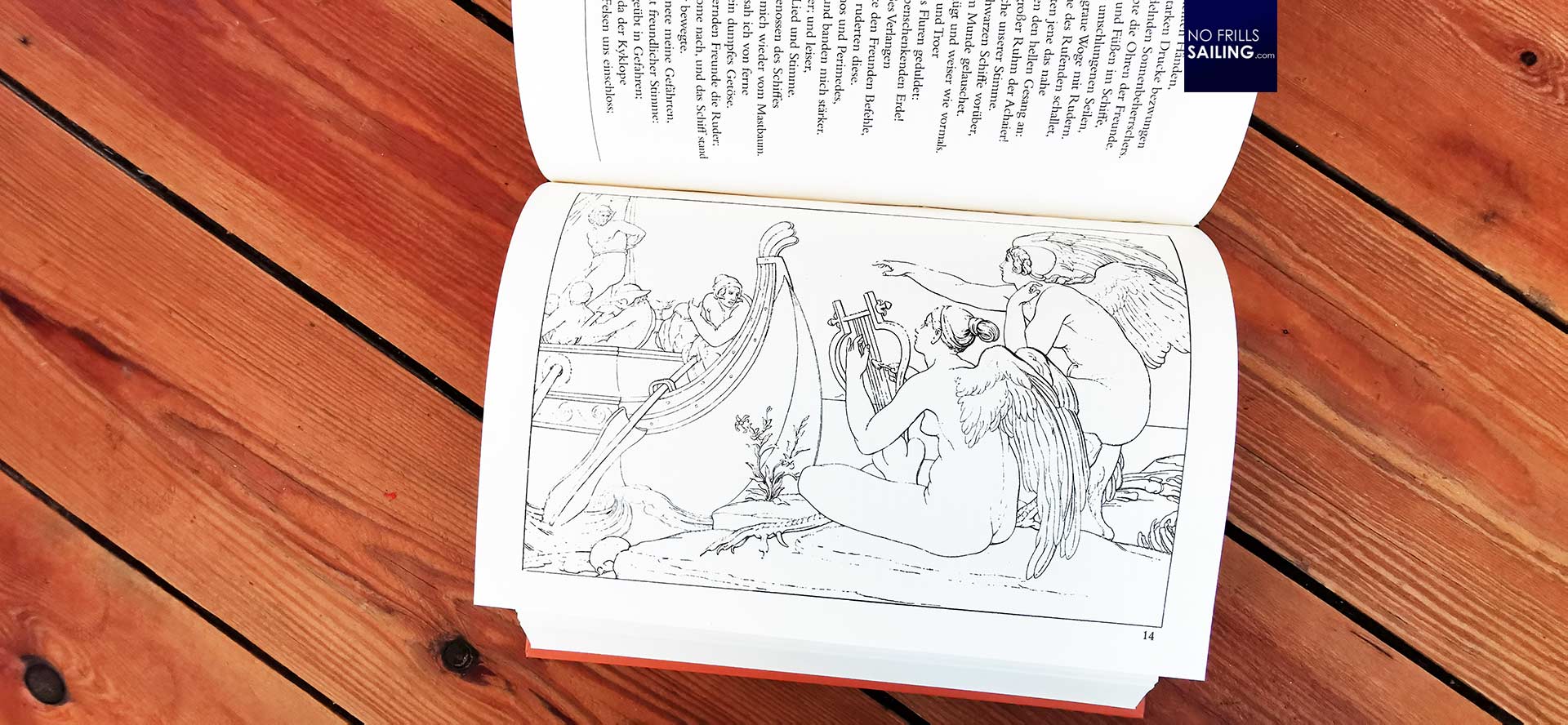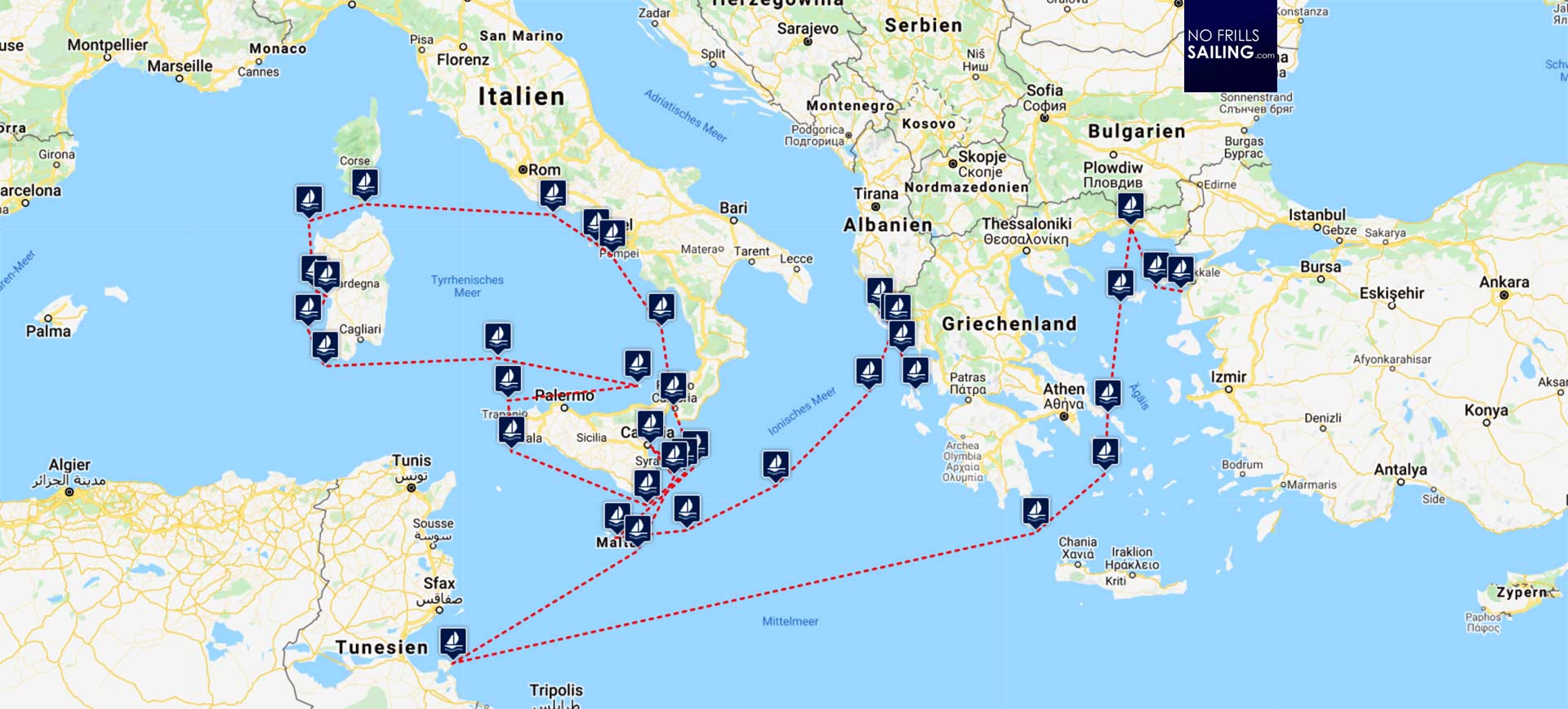It was may be during our last family´s vacation in Greece when I felt so inspired, so carried, kind of touched in the face of this beautiful land, its cordial inhabitants and their breathtaking history – namely the cradle of all our modern European and Western civilizations. I couldn´t help but to get a copy of the greatest story of them all: Homer´s Odyssey. As a kid, I remember, watching the Hollywood classics, scary stop-motion of the Polyphemos, the Cyclops, being thrilled and excited. Apart from that, the Odyssey (together with the Iliad) is the oldest, the first and one of the finest written prosaic stories of Europe. And a great seafarer´s tale, more than worth to be read by an adult.

There is still (and will always be) a dispute amongst scholars whether this “Homer” was a single man, a group of people or just a synonymous noun for a line of people who finally wrote down this epic journey. Nobody knows if Homer really existed. We know for sure that the Iliad and Odyssey are the first ever written down European stories. In this, it´s a treasure, a heritage, something to look at closely for all Europeans. I bought two books, both delivering Homer´s story. The first is a compendium or all ancient Greek Myths, from the mind-boggling Pantheon of countless Gods and Goddesses to a “scaled down” prosaic version of the Odyssey in – let´s say – easy to digest wording. The second is Homer´s original (in my own language of course) – the Odyssey in rhymes.
A “how to” read the Odyssey
As the Odyssey in it´s original form is a prosaic chant of 24 major chants comprising of a total of over 12.000 rhymes. I of course cannot speak Greek nor any ancient dialect but even the German (or your English) translation will be kind of difficult to read. In it´s original, the Odyssey was meant to be recited by actors, their form of entertainment. So, at first I read the processed version which has been transformed to a single story with coherent sentences, making it easier to grasp the story. Which, in turn, although being almost 3.000 years of age, is surprisingly modern in it´s structure and dramatic style.

Homer does not tell the story from A to B to Z but uses a wide range of stylistic tools, such as flashbacks or storylines in different times or places unfolding parallel to each other. There are also changes in perspective and of the narrator thus making it surprisingly modern. Christopher Nolan couldn´t have made it better. When reading the original verses it helps to having read the whole story before hand and knowing what happens and where, it´s the beaty of the language itself that makes it fun to read and interesting as well. The Odyssey is a thick book: Homer´s original comprises a volume of 380 tightly packed pages. The “tuned” version in plain language are mere 90 pages – that´s what compression does to the story.
A dozen layers of interpretation
But why is the Odyssey so important? Well, apart from the hard facts, it´s simply a great story. Odysseus travels the then known world, the book embraces the knowledge of the range of Greek maritime travels. It´s full of references to real places and islands, some of which are enriched with mythical alterations. The famous single-eyed Cyclops for example is an interpretation of the volcano Mount Etna of Sicily, its orange lava spitting crater the “horrendous single eye of the horrific creature throwing stones” at the ships. There are so many layers of interpretations possible: The endurance of the voyage, the lessons learned, the adventures persisted.

The Odyssey sports a hero who is still today different. Homer´s first book, the Iliad, telling the story of the Trojan War depicts a “real” hero. Achill, a strong, no-nonsense man. A fighter, a true hero. Straight forward, always in first, fighting his way through. Odysseus, although as well a strong classy Greek role model of a man, is different. He is not the classic hero fighting its way through – he endures. He has to suffer. He has to watch his comrades being eaten, killed, smashed, bewitched. One by one. Of the 200 companions, only one – himself – will come home in the end. He wins because of his intellect, because of trick and deceit: Unforgotten the trick he plays to the Cyclops, telling him his name would be “Noman” – after blinding the Polyphemos, the giant yells to his fellow monsters that “Noman did this!”. Odysseus may be the first anti-hero of European storytelling.
Homer´s books – still valid today
The book was an instant success even when published 3000 years ago: Scholars found out that the supposed location of ancient Troy experienced a surge of interest, even the Roman Empire – before Christianity became state religion – financed a huge program to re-build the City of Troy (then called “Ilios”) as the early Roman Emperors derived their ancestry from Rome´s mother city of Troy. The whole Eastern-Mediterranean area with their rich culture and proud people could all draw theirs from the story as Odysseus travelled the whole are from nowadays Turkey to Northern Greece, the Aegean and Peloponnese to Southern Italy, Sicily, Malta even to Sardinia and down South to Tunesia in Africa. Some scholars locate places of the story as far as Gibraltar and even Madeira in the Atlantic Ocean.

Apart from the learnings one can draw from the book itself, the lessons learned from the hardship of Odysseus and his men, I find this story most entertaining and thrilling. The mix of real-world things happening such as storms, hunger and thirst, navigational problems and natural phenomena, I found it exciting to have the ancient religious beliefs mixed in with their huge variety of Gods and Goddesses. The Odyssey might as well be a real-life sailing trip: I put Odysseus´ route into the planning software: A 3.500 mile journey worth a three-months trip. And isn´t it exciting that we still today a calling a long trip with loads of detours and hardship but with a lucky ending an “odyssey”? I think it´s definitely a book worth reading for sure.
You may also like to read:
All maritime books & films reviews here
Greek winter sailing parts 1, 2 and 3
Racing the Aegean Sea
